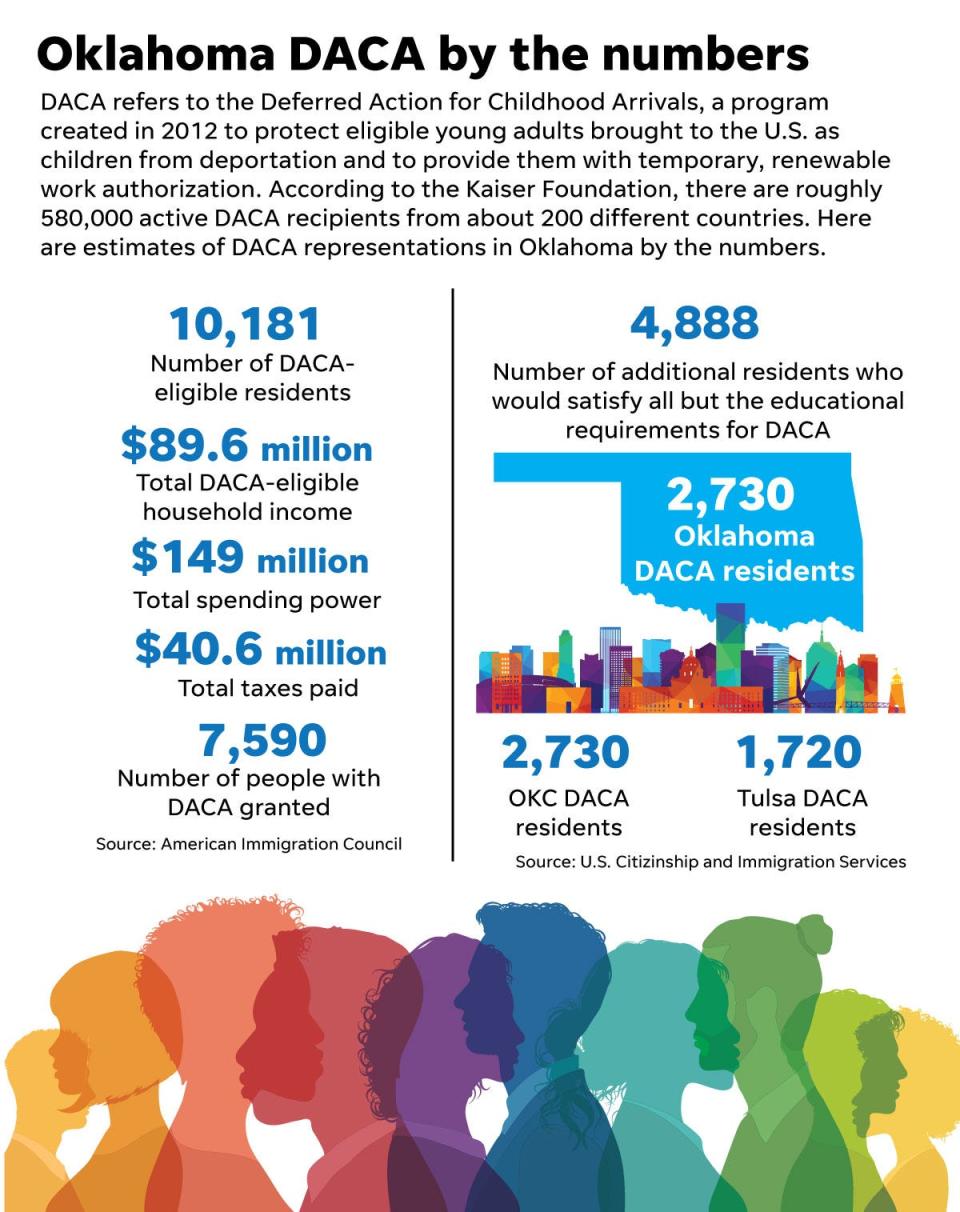DACA recipients and their loved ones are nervous. So are their employers and the economy.
The United States currently has about 580,000 undocumented individuals in the United States who are protected under the DACA program. Some have since been able to change their status to permanent residency and eventual citizenship. Others have not. Without getting into politics and speaking to the legality of the program, it is important that the community understand the devastating effects with the possible collapse of the program in 2024. DACA recipients and their loved ones are nervous. The same goes for their employers and the economy. What happens if their ability to lawfully work is terminated? Employers will lose valuable employees overnight. If DACA recipients can no longer work, they will default on loans, potentially causing a major economical collapse.

I am an immigration attorney in Oklahoma City with many years of experience. My clients are nervous. They’ve been able to lawfully work and prevent deportation under the DACA program since 2012. Several of my clients who were children when the DACA program was enacted are now adults with children of their own. They are incredibly grateful for the DACA opportunity, but they are terrified about the possibility of the rug being swept out from under them. I, too, have a personal stake in this game. My longest employee, Amparo, is a DACA recipient. As many in the community have experienced, it is nearly impossible to find a valuable employee. When we find one, we hold onto them and do what we can to keep them. If I lose Amparo, my business will suffer. She is currently in charge of managing over 100 cases in my law firm. I cannot train a new individual overnight, provided I can even find one to apply. It sounds selfish, but the entire country should be worried about their businesses if DACA is ended.
Not only does Amparo have to worry about her ability to be employed, but she also worries about her family. Amparo was 11 years old when the DACA program was enacted. Although eligible to apply when she turned 14, her family wasn’t able to afford the $495 filing fee. In 2016, President Donald Trump was elected, and he terminated the program. Litigation ensued, and the courts held that those who maintained DACA could continue to renew it until the courts could decide the legality of the program. In 2020, Joe Biden was elected president, and he attempted to rescind the termination of DACA. For a very brief window, new DACA applications were being accepted and approved, and Amparo was able to successfully obtain DACA.
Litigation has ensued again, reverting back to renewals only. So, Amparo is currently safe, but we are still awaiting a decision from the Supreme Court on the issue. If the Supreme Court does not uphold the legality of the program, 580,000 humans, including Amparo, will lose their ability to work. Amparo is now 23 years old. She has a 4-year-old son and she is currently pregnant, due in January 2024. Her husband is in a similarly situated position.
Amparo is incredibly grateful for the opportunities that DACA has provided. It is not her fault she was brought to the United States as a baby. The United States is her home. The frightening thought of losing her job and protection from deportation is a daily distraction that she must cope with. Something that I, as an employer, must also worry about. Because if you know, you know… good employees are hard to find.

Kelli J. Stump is the owner and principal attorney at Kelli J. Stump PLLC in Oklahoma City. She has over 15 years of experience in a practice limited primarily to immigration law. As a member of the American Immigration Lawyers Association (AILA), she is currently the president-elect of the National Executive Committee.
This article originally appeared on Oklahoman: DACA recipients and their loved ones are nervous. So are employers

